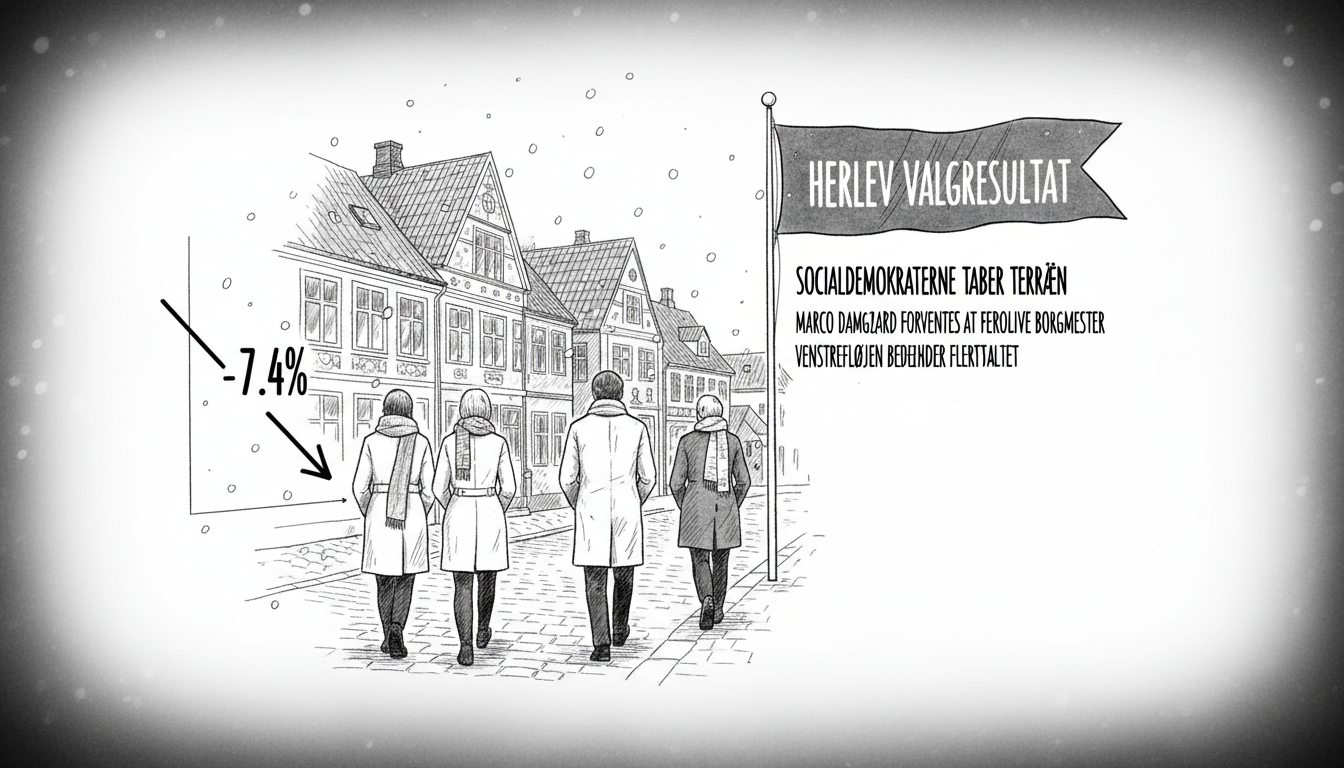The Social Democratic Party has suffered a significant setback in Herlev Municipality, located west of Copenhagen. Preliminary election results show the party lost 7.4 percentage points of support. This continues a troubling trend for the party that previously dominated local politics for decades.
The decline represents the second consecutive election where Social Democrats have lost ground in Herlev. The party previously held an absolute majority in the municipality but lost that dominant position in the last election cycle. The political landscape is clearly shifting in this Copenhagen suburb.
Former mayor Thomas Gyldal Petersen decided to step down at the turn of the year after 13 years in office. His successor Marco Damgaard led the party through this election campaign. Despite the electoral setback, Damgaard remains optimistic about his political future.
Damgaard stated he expects to continue serving as mayor. He told reporters he feels confident about maintaining his position and will immediately begin negotiations with other political parties. The incoming mayor emphasized his commitment to forming a functioning government for Herlev.
The election results show Social Democrats will lose one seat on the municipal council. This reflects a broader pattern emerging across Denmark where traditional center-left parties face declining support. Meanwhile, other left-wing parties made gains in Herlev.
The Socialist People's Party increased its representation from two to three seats. The Red-Green Alliance also saw support grow by 1.0 percentage point, though this didn't translate into additional council seats. Together with Social Democrats, these three parties control 13 out of 19 council seats.
This gives the left-wing bloc a comfortable majority in the municipal government. The political alignment suggests policy continuity despite the Social Democrats' declining popularity. The coalition has more than enough seats to govern effectively without seeking support from center-right parties.
The changing political dynamics in Herlev mirror wider trends in Danish municipal politics. Traditional party loyalties are weakening as voters become more willing to switch between left-wing alternatives. This election demonstrates that even long-established political strongholds can experience rapid change when leadership transitions occur.
Local political observers note that mayor transitions often trigger voter realignments. The departure of a long-serving leader typically creates uncertainty about party direction. Voters appear to be redistributing their support within the left-wing spectrum rather than shifting to conservative alternatives.
What does this mean for Herlev residents? The municipal coalition will likely continue previous policy directions with some adjustments. The strengthened position of smaller left parties might influence specific policy areas like environmental initiatives or social welfare programs. The real test will come during budget negotiations and implementation of campaign promises.
The election outcome raises questions about Social Democratic strategy in upcoming regional and national elections. Party leaders will need to analyze why their traditional base continues to erode in former strongholds. The Herlev results suggest simply changing leadership isn't enough to reverse declining support trends.

